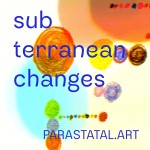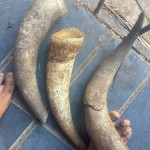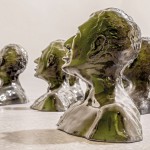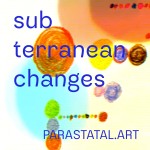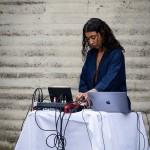
ⵜⵉⵍⵉⵙⵜ (Hudud)
Leila Bencharnia discusses her sound performance ⵜⵉⵍⵉⵙⵜ (Hudud), presented as part of Subterranean Changes at DADA Marrakech in April 2025. Her piece unfolds in response to composer Ahmed Essyad’s explorations of oral tradition and rhythmic complexity. Guided by indigenous systems of repetition and polyrhythm, Leila Bencharnia positions sound as a living, moving body—pushing against the confines of oppressive temporal structures. Through cycles and ruptures, she employs rhythm as a dynamic force, uncovering layers of resonance and resistance tied to land and memory. Notes are no longer notes, she explains, but colors, textures, a language between oneself, the land, and the ancestors.
